Words, just read this one.
During my university years, I transformed from a language "lack of ability" to a multilingual user, and my English score reached 8 in IELTS. Language learning is my interest and the leverage point for changing the trajectory of my life. Because of the learning method I explored by integrating language learning, I have achieved some academic success and also gained a ticket to the world stage.
In this guide, I summarize my previous experience in learning words in English, Spanish, and Japanese.Thinking about vocabulary, practical details and how to use tools such as dictionariesLet’s share three aspects to help you learn words efficiently.
Vocabulary is the foundation of English learning, but it is also the most difficult part for everyone. Vocabulary is an important indicator of language ability. Too many people start memorizing vocabulary from the abandonment book, memorize and forget, forget and memorize again, and when it comes to applying, their palms sweat and their minds go blank, and they just can't come up with the words.
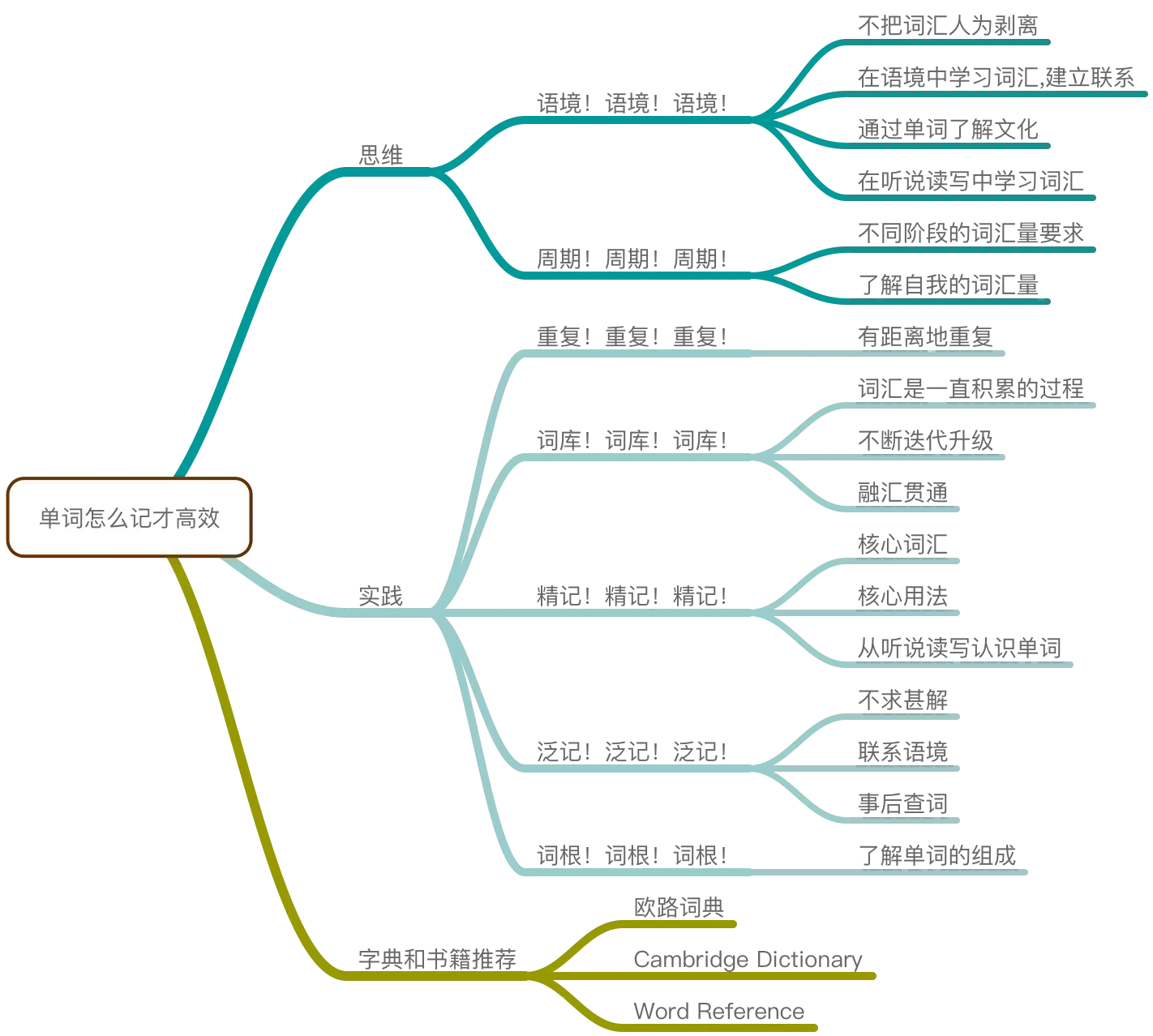
thinking:
To learn words efficiently, we must first realize the importance of "context" and "cycle".
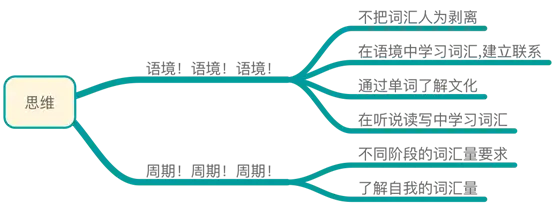
context:Words never exist alone, the context in which they are used is very important. When learning words, we should not separate them and memorize them mechanically.
Context refers to the scene in which a word is located. It can be a word, a sentence, or an article. On a deeper level, it is a cultural background. For example, there are differences in spelling, usage, and pronunciation between British English and American English. For example, the word color is "color" in American English, but it is spelled "colour" in British English. The British often say "Brilliant" and "Cheers", while Americans often say "Cool" and "See you". Different expressions and usages reflect the context behind them. The meaning of a word will also change in different sentences. For example, "Blue" refers to the color blue, but it can also express a depressed mood in "He looks blue".
When we talk about learning words, we should always connect them with the context behind them, learn words in context, and record their specific usage in different contexts.Only in this way can we apply what we have learned. At the same time, learning is not just about remembering its spelling, but also about its meaning. We need to understand it from all aspects, including listening, speaking, reading and writing (examples will be explained in the "Essential Memorization" section below).
Listening: We need to learn words from their pronunciation and become familiar with their sounds.
Say: We need to recognize words in expression and be able to pronounce them and express them appropriately.
Reading: We need to recognize words in the text and understand their role in the context.
Writing: We need to recognize words in writing and become familiar with their spellings.
While having "contextual" thinking, we need to establish "cycle" thinking.
Learning words is a gradual process, and it also corresponds to different language abilities. To learn efficiently, you need to understand the cycle of your overall language learning and learn in a rhythmic way, rather than forcing things to grow and blindly pursuing vocabulary. Memorizing complex words at the beginning will often have a counterproductive effect, which is inconsistent with your overall language ability and will frustrate your confidence. As I mentioned in the first article of "The Way and Art of English", English learning has a cycle, which is divided intoIntroduction, Growth, Maturity and Decline, different stages have corresponding characteristics and vocabulary.
When learning words, you should choose vocabulary to learn based on the progress and situation of the overall English learning cycle.Suppose, after comparison, you find that you are an English user with B1 level overall proficiency, but you find that you still have a big gap in vocabulary in the work scenario. Then, based on this situation, you can focus on improving the vocabulary of work topics and their special expressions in this scenario.
practice:Having talked about “context” and “cycle” thinking, let’s talk about practice.
1. Repetition! Repetition! Repetition! is the key to learning words efficiently.
Here we mainly introduce a method called
“Spaced Repetition”, as I understand it, means repetition with a distance.
According to Alan (1997) in his book “Human Memory: Theory and Practice”:
Spaced repetition is a learning technique that incorporates increasing intervals of time between subsequent review of previously learned material in order to exploit the
psychological spacing effect. Alternative names include spaced rehearsal, expanding rehearsal, graduated intervals, repetition spacing, repetition scheduling, spaced retrieval and expanded retrieval.
In my practice,I will review the material in the vocabulary bank regularly, repeat it at intervals, and look it up when I forget something.This should be distinguished from the Ebbinghaus forgetting curve that everyone is familiar with and often uses. The Ebbinghaus forgetting curve is mainly based on people's memory of new things with meaningless and irregular content, and advocates that the interval of memory is just after memorizing, 20 minutes later, 1 hour later, 8-9 hours later, 1 day later, 2 days later, and so on.
Language is actually a regular and meaningful content. In my opinion, the forgetting interval of each person's language learning varies from person to person. As long as you review it regularly according to your own situation and make sure you still remember it, you don't have to strictly follow the time interval of the Ebbinghaus forgetting curve.
2. Thesaurus! Thesaurus! Thesaurus! The base camp for learning words
To achieve regular review, the role of the vocabulary bank is very important. From the beginning of learning a language, the learning of vocabulary will not stop, no matter what level you eventually reach. The vocabulary bank is a foundation for the continuous accumulation of vocabulary upgrades and iterations. Let me talk about how to build a vocabulary bank.
Here we continue to recommend creating a word bank on Microsoft Onenote, which supports cloud storage and mobile phone opening for free. As shown in the figure below, we can use Ononote to create a notebook and name it a word bank.At the same time, you can set the type of vocabulary in different sub-pages: such as new words, easy-to-mistake words, classic expressions, IELTS core words, TOEFL core words, colloquial expressions, word roots, etc.. Organize your words into categories and review them regularly.
Try to develop the awareness of storing the words you encounter in study and life anytime and anywhere.For example, when watching an American TV series and seeing an authentic expression, you can immediately take out your phone, open Onenote and record it in "Classic Expressions".
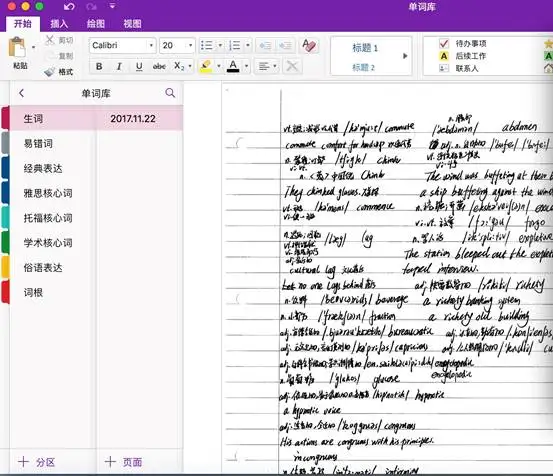
With the vocabulary bank, my mother no longer has to worry about me memorizing words from scratch every time.
So how do you remember words? Let me introduce the key points below.Precise and general memorizationTwo ways.
3. Remember! Remember! Remember! The depth of vocabulary
Because we have limited time and energy to learn a language, we cannot learn every word comprehensively.Learn words strategically and discriminativelyIt becomes particularly important.
In real expression scenarios, the complexity of vocabulary and sentence patterns is not that important; flexible use is the key.For example, when listening to the speech of US President Trump, did you feel "I met a fake president who spoke fake English?"? I could understand it completely with my CET-4 vocabulary, such as "Great great man, I like him, make America great again". He used extremely simple language. According to incomplete statistics, Trump's speech was more than a thousand sentences long, but he only used480There is a Flesch-Kincaid test in the United States to determine the difficulty of an article. According to the test, Trump's language is probablyFourth gradeBar.

In philosophy, it is said that "the great way of the world is simple", and this is actually also true in daily communication. If simple expressions can be expressed, there is generally no need for long-winded and flowery speeches. Of course, academic and business occasions require a higher level of sophistication in language.In our daily communication, influenced by the previous exam-oriented education, we often want to find the most beautiful words and sentence patterns (the college entrance examination essay is a pile of good words and sentences) and the most perfect and pure pronunciation, but forget that its real function is to express the feelings at that moment as quickly and efficiently as possible. Many spoken languages are actually not in line with strict grammar, but are born for expression and become idiomatic usage.

For the core common vocabulary, we should not only know it, but also master its core usage. We should have a comprehensive understanding from listening, speaking, reading and writing. There are countless circles in the core vocabulary of different English levels. We will not expand on it here because of the length of the article. We should focus on how to learn it.Pronunciation, spelling, common phrases, synonyms, antonyms and examplesFor example, the word "lapse" in my notebook:

After we memorize the core usage of the core words into the vocabulary, we should try to apply them in the following oral expression and writing. For example, "a lapse of time" is very common and is also the name of a song. In this way, memorizing a word in depth and breadth will bring immediate application ability. As the name suggests, memorizing words accurately does not require quantity, but requires depth and understanding.
4. Memorize widely! Memorize widely! Memorize widely! The breadth of vocabulary
Of course, we cannot do that, and there is no need to memorize every word.For non-core words and uncommon words, we can adopt a general memorization strategy, not seeking to understand them in detail but covering a wide range of topics.When encountering words in reading, try to avoid looking them up directly, but guess them from the context. For general memorization of words, we only need to recognize them when we encounter them in reading, rather than having a deep understanding of them, and we don’t even need to know their exact pronunciation, such as many GRE vocabulary, medical terms, proper nouns, etc.If we encounter it repeatedly in the future, we can switch back to the detailed memorization mode to gain a deeper understanding.
5. Roots! Roots! Roots! The magic weapon of general memorization
Finally, let's talk about roots. Many learning strategies also mention the usage of roots and affixes. Roots are the components of words, similar to the radicals of Chinese characters. The meaning of many words can be inferred based on their roots.There are more than 200 commonly used words in total. I will put them in the root library of the word library..
There are many reference books on word roots, which will not be elaborated here.When I use word roots, I don't memorize them by rote, just like we don't memorize all the radicals when we learn Chinese.In the root library of the vocabulary library, I will consciously record the words in the general memory library that I cannot guess at the time and analyze its root composition.Gradually develop the ability to make inferences, so that when memorizing, you can quickly combine the context and word roots to make inferences.
The combination of intensive memorization and extensive memorization can achieve a good balance between the breadth and depth of vocabulary.
Dictionary recommendations:
Finally, let’s talk about the use of dictionaries.
Here are 3 that I use the most:Euro dictionary; Cambridge Dictionary; Word Reference; Each of these three dictionaries has its own advantages and disadvantages. Let me explain them one by one.
Take the word “entrepreneur” as an example.
The first is the Eurolu Dictionary, which is mainly convenient for use on mobile phones and can be downloaded for both Android and Apple.
Contains word levels, spellings, phonetic symbols, British and American pronunciations, adjectives, nouns, synonyms, idioms, and a library of commonly used example sentences.As shown in the figure below, the advantage is that it is easy to use and contains all the content needed for basic memorization. The disadvantage is that it lacks English interpretations of the words.
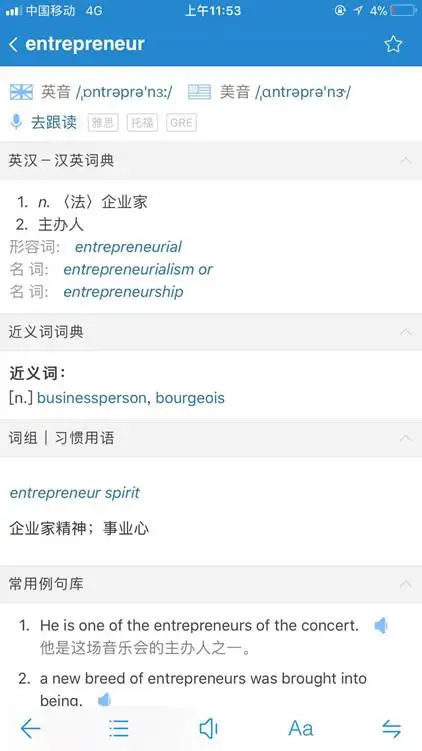
When we need to understand a word better, we need the Cambridge DictionaryCambridge Dictionary. The advantage of Cambridge Dictionary is that it is more comprehensive, including English interpretation, usage in different scenarios and more vivid usage. The disadvantage is that there is no mobile APP, which is not so convenient. It is mainly used on PC, and no VPN is required.
The website is dictionary.cambridge.org.
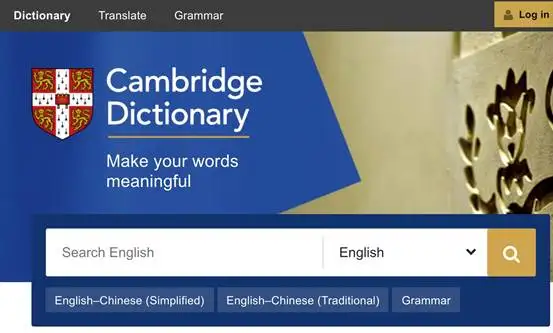
The content of the words will be much richer, and more importantly, the meanings in different contexts are given, including British, American, and business usages.
British:
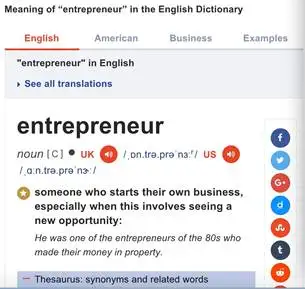
American:
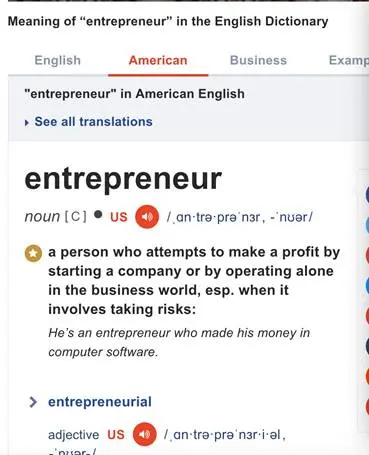
Synonyms:
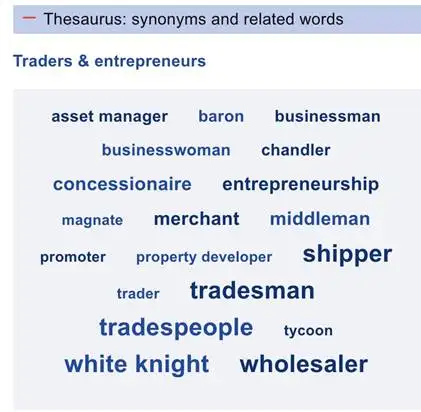
Example:
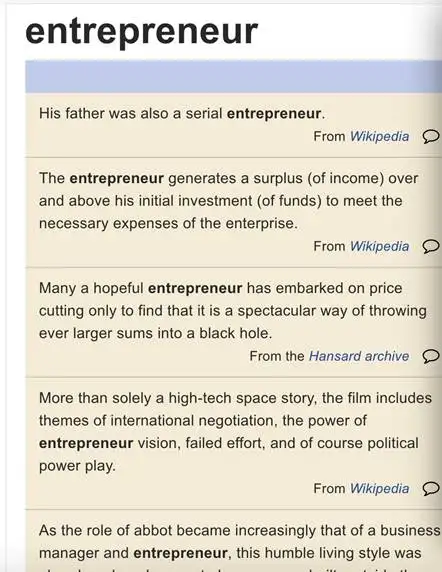
Final talkWord Reference, a multilingual dictionary. Advantages: As the name suggests, it can realize multilingual query, English-English, English-Spanish, English-Japanese, Chinese-English, and English-Chinese. It is a relatively versatile dictionary. Disadvantages: It does not have an APP and is suitable for use on PC. It is especially suitable for multilingual language learners.
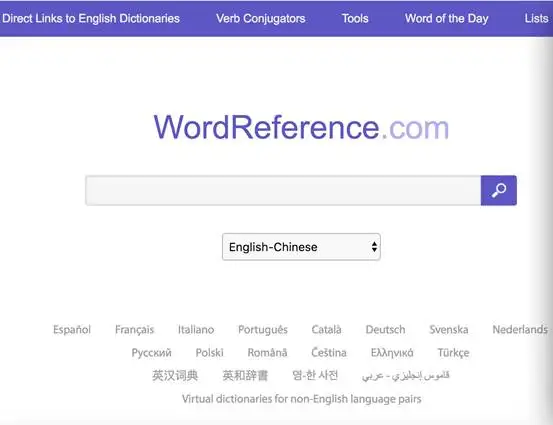
Let’s also search for entrepreneur:
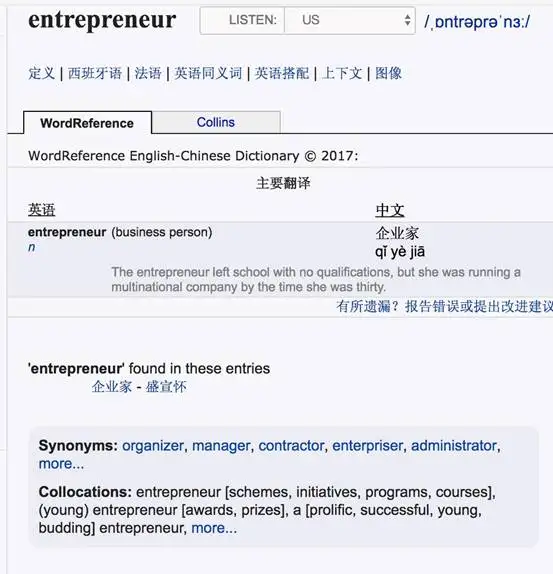
Search supports interpretations in other languages such as Spanish, French, and one-click access to the Collins dictionary.
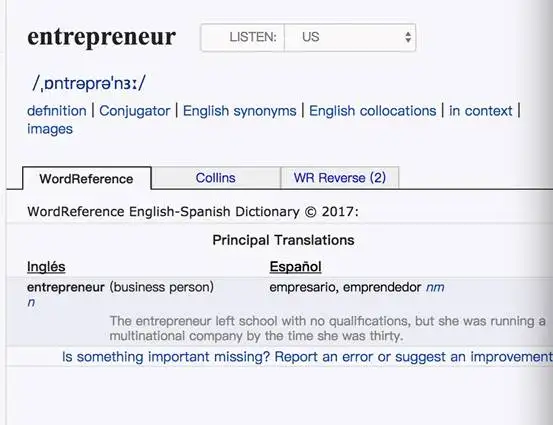
The three dictionaries each have their own advantages and disadvantages, and you can use them in combination according to the situation.
I usually use Eurolu Dictionary, use Cambridge Dictionary for in-depth understanding, and use WordReference for multilingual learning.
Conclusion:
Learning vocabulary is not a one-day job. It is important to persist and accumulate, and to master the knowledge, which accompanies the entire process of language learning. It is necessary to establish a sense of "context" and "cycle", create a systematic vocabulary, review it from time to time, and adopt both intensive and extensive memorization to expand the depth and breadth of vocabulary. There is no "most scientific" learning method for learning vocabulary. Everyone can find a method that suits him. The following is a summary of my battle with vocabulary in English, Japanese and Spanish. I hope it will be helpful to my juniors who are struggling with vocabulary.